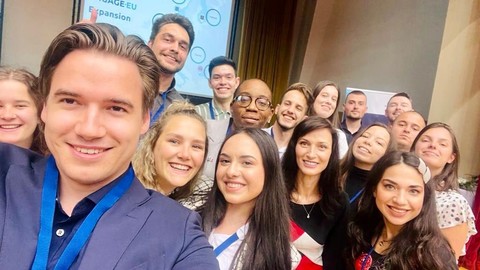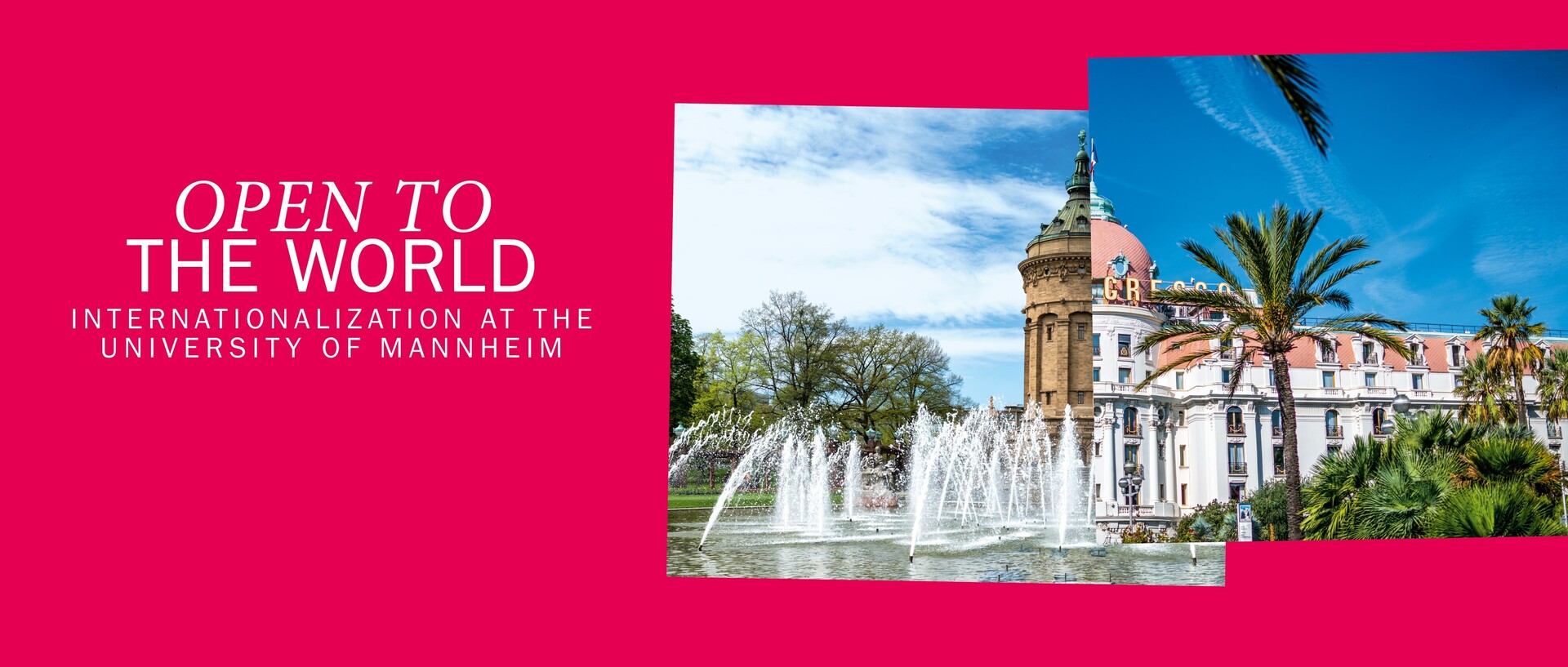A European Campus
Setting up a common ENGAGE.EU campus is the grand vision of the 7+2 partner universities. In July, 35 students from all over Europe met up in Rome at the first ENGAGE.EU summer school, and over 500 students are already making use of the alliance’s virtual platform, the Online Exchange Initiative (OEI). The ENGAGED Learning team still has enough planned to fill the next few years, including interdisciplinary modules, a joint certificate program, and even a joint degree.

You are ENGAGE.EU! The new ENGAGE.EU flyer is meant to make its readers feel like they are part of a larger community. If you look toward the bottom of the flyer, you cannot help but notice the nine European cities whose universities are united as partners in the ENGAGE.EU alliance. Even though a distance of 2,124 km separates the northernmost university (Bergen in Norway) and the southernmost (Barcelona in Spain), one of the alliance’s visions is that, in the future, the more than 100,000 students should clearly feel that they are studying at a common ENGAGE.EU campus.
Marco Rupp and Sandro Mochan assisted with the flyer from the first draft to the finished product. They distributed it enthusiastically to first-year students on the University of Mannheim’s campus during the orientation week at the beginning of the semester. Both of them have a dual role, as they themselves are students at Mannheim (or at least, Rupp was until recently) while also acting as advisors for the alliance. This means they are also part of the ENGAGED Learning team and serve on ENGAGE.EU’s Board of Learners as student representatives. The Board of Learners is made up of two students from each partner university, and together they discuss and develop new ideas at regular meetings. Rupp was involved in the development processes for ENGAGE.EU before the application was submitted in March 2020 and played an active role as the first chair of the Board of Learners. Looking back, he says: “I’m very proud that we were able to include learners’ voices right from the start—and that doesn’t just mean students, it also means doctoral candidates and alumni. They were actively involved in all of the processes.” Now he is handing things over to Mochan, who will co-chair the Board of Learners with Tessa Chambon from Tilburg University. “We already offer a really wide range of things, like the summer school, joint online courses, and trips. The common campus is becoming more and more of a reality—and now we have to make it tangible for students,” says Mochan, describing the alliance’s next tasks.
Meanwhile, a lot of people are working in the background on specific programs and activities. “Together with Kathrin Blitzke from the International Office and colleagues from the University IT and the Teaching and Learning Center, I am a part of the ENGAGED Learning team. We represent the University of Mannheim in working groups that have been set up with the partner universities,” explains Claudius Werry, co-director of the International Office. Werry also coordinates the Online Exchange Initiative (OEI). This initiative provides opportunities to study abroad virtually and was put together almost overnight during the pandemic. It is now a successful flagship project on the long road toward a common course catalog. “The partnership agreements already existed, and all the universities were already offering online courses—so why shouldn’t we make it possible for our students to attend virtual courses at LUISS in Rome or Tilburg University?” Werry explains. Even if you only consider the inclusion aspect, the OEI is an important step that makes it possible for everyone to have virtual intercultural experiences even if they cannot take part in a physical exchange, for example for health or financial reasons. “The ENGAGED Learning team sees our task as being to flesh out the vision of a common campus with things for people to do,” says Werry. One example is the modules that will be offered starting in the fall semester. The University of Mannheim is offering the modules “Science for the Future” for bachelor’s students and “Broadening Governance Horizons” for master’s students. Students of all degree programs at all partner universities can apply for the interdisciplinary courses. The goal is to educate learners about topics relevant to society.
Things are also getting interesting for Kathrin Blitzke from the ENGAGED Learning team, as she has been working hard on implementing joint degree programs since March 2021. The joint certificate program is being coordinated in Mannheim and will start its pilot year with the application phase in October. The program topic is “Digital Transformation,” and partner universities will offer various virtual block courses. Students will receive a certificate after participating in a one-week summer course in Mannheim. At the same time, Blitzke’s working group is endeavoring to get more “joint programs” off the ground soon. “We are planning four double degrees in the field of sustainability and climate change that will start in the academic year 2023/
Text: Jule Leger / October 2022
